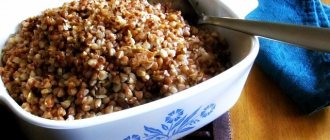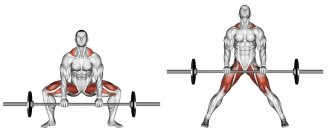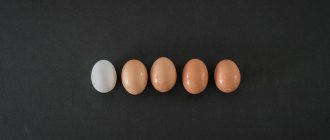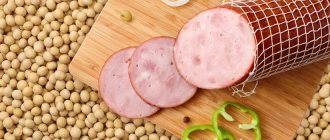Did you know that there are many other types of protein besides whey? If you're following a plant-based diet, have trouble digesting dairy, or just want to try something new, then it's time to learn more about soy protein.
It is derived from regular soybeans, is completely plant-based and contains many nutrients. So, we decided to look at it from a scientific point of view to find out what scientists think about soy protein. Can it have health benefits and how can you use it to achieve your fitness goals?
What is soy protein?
Soy protein is a plant protein derived from soybeans. It is an excellent source of protein for vegetarians, vegans, and those who do not consume dairy products, avoid cholesterol, and consume low amounts of saturated fat.5
Soy protein comes in three types.
Soy protein isolate
This is the highest quality soy protein. It is more refined and, compared to other types, undergoes a longer processing process. It has the highest biological value among all plant proteins. This means that the body will use the greatest amount of nutrients absorbed.1
Soy protein isolate contains:
- protein supplements (shakes, bars, etc.);
- dairy products;
- some meat substitutes;
- seasonings;
- bakery products.
Soy Protein Concentrate
It is produced by extracting sugars (carbohydrates) from shelled soybeans. It's still high in protein and retains most of its fiber, which is good for digestion.3
Soy concentrate contains:
- flakes;
- bakery;
- infant formula;
- some meat substitutes;
- beer.
Textured soy protein or textured vegetable protein
Textured soy protein is made from soy protein concentrate and comes in a variety of shapes and sizes. Soy texture resembles meat in structure and is often used as a meat substitute.
It can be used to prepare many popular traditional meat dishes such as soups, curries, stews and many others.3
Soy Nutritional Information
Soy contains all three macronutrients - proteins, fats and carbohydrates. According to the USDA Food Composition Database, one hundred grams of raw soybeans contain on average 36 grams of protein, 20 grams of fat and 30 grams of carbohydrates.
This ratio will vary depending on the product in question. For example, a protein shake made with soy protein isolate will have a completely different composition than a burger made with soy protein.
Soy is high in protein, vitamin C and folate. It is also a good source of fiber, calcium, iron, magnesium, phosphorus, potassium and thiamine.4
Soy protein is a plant protein. All proteins, both animal and plant origin, are made up of amino acids. Soy protein is one of the few complete proteins. This means that soy contains all nine essential amino acids (leucine, isoleucine, lysine, methionine, phenylalanine, threonine, tryptophan, valine and histidine).4
Soy is also a good source of branched chain amino acids. Branched chain amino acids (BCAAs) consist of leucine, isoleucine and valine. These amino acids play an important role in building muscle mass, recovering from hard training, and improving athletic performance.4
Soy and GMO
Probably one of the most popular claims about soy is that it has negative effects on human health because it is produced through genetic modification.
Genetic engineering is used to create new varieties of plants that are resistant to unfavorable environmental conditions and pests. In many cases, the use of transgenic plants significantly increases yield. There is an opinion that with the current population of the planet, only GMOs can save the world from the threat of hunger, since with the help of genetic modification it is possible to increase the yield and quality of food.
Currently, the Federal Law of July 3, 2016 N 358-FZ “On amendments to certain legislative acts of the Russian Federation in terms of improving state regulation in the field of genetic engineering activities” is in force on the territory of the Russian Federation. The creation of GMOs in Russia is possible only for scientific purposes.
Despite this, we have a chance to encounter the presence of GMOs in soy products in Russia, purchasing, for example, imported products. Here I would like to note that in the Russian Federation the emphasis is on the presence of GMOs specifically in soybeans, but GM components are also found in bakery products, meat, dairy and other types of products. That is, not only soybeans are a potential source of GMOs, as is often noted.
At the same time, to date, none of the studies conducted on GM products allowed on the market have clearly shown that they can be harmful to health.
Beneficial properties of soy protein
One reason people are switching to more plant-based diets may be to eat less cholesterol, as high amounts are found in diets that include a lot of meat.
The advantage of soy protein is that it contains no cholesterol and, while a high-quality protein, contains only a small amount of saturated fat. These qualities make soy protein a healthy alternative to meat-derived proteins.6
There is also evidence demonstrating that soy may actually lower levels of low-density lipoprotein (or so-called “bad cholesterol”) and increase levels of HDL (“good cholesterol”). Research has shown that these benefits are enhanced by consuming unhulled, less processed soybeans.6
Unlike many other plant protein sources, soy protein contains relatively high amounts of zinc. The absorption of zinc from soy is only 25% less than from meat. Zinc concentrations in the body affect testosterone—low zinc concentrations have been linked to low testosterone levels, which affect muscle growth and fatigue.4
So if you notice that you often feel sleepy, maybe you should try a soy protein shake?
Soybeans are also rich in vitamin B, calcium, iron, magnesium, phosphorus and potassium, which are essential for maintaining the immune system and producing energy. They can improve your overall well-being and also provide an important boost of energy.4
Soy is also rich in fiber, which helps lower cholesterol, improve gut flora and improve bowel function. A healthy gut means better performance both in and out of the gym.9
Summing up
The data available to date for soybeans is encouraging. Soy products may reduce the risk of breast cancer and recurrence; they do not adversely affect male function or the thyroid gland, but may reduce the absorption of thyroid medications.
| If we talk about the need for soy in general, it is important to remember the presence of variety in the diet. |
Many people who start a vegetarian (or vegan) diet feel like they have to eat soy products. But the point is that this diet can follow the Mediterranean tradition - with an emphasis on vegetables, fruits, beans and pasta. Or she could follow the Latin American tradition, with staples like beans, rice and corn.
If you decide to include soy products in your diet, science is on your side, because it is unlikely that you will immediately start consuming 3-4 servings of soy daily.
Author: Elena Dedyaeva, MSc
Literature: 1. Soy: What's the Harm? by Jack Norris, RD 2. Settling The Soy Controversy. Neal Barnard, MD 3. A Brief Historical Overview of the Past Two Decades of Soy and Isoflavone Research. Mark Messina. The Journal of Nutrition. First published online May 19, 2010; doi:10.3945/jn.109.118315 4. Insights Gained from 20 Years of Soy Research. Mark Messina. The Journal of Nutrition. First published online October 27, 2010; doi:10.3945/jn.110.124107 5. Phytoestrogens and cognitive function: a review Mira Soni, Tri Budi W. Rahardjo, Rodiyah Soekardi, Yenny Sulistyowati, Lestariningsih, Amina Yesufu-Udechuku, Atik Irsan, Eef Hogervorst. Maturitas 77 (2014) 6. The natural history of soy allergy. Savage JH, Kaeding AJ, Matsui EC, Wood RA. J Allergy Clin Immunol 2010;125:683-86. 7. Industry program of the Russian Soy Union “Development of soybean production and processing in the Russian Federation for 2015-2020.” Russian Soy Union. Moscow - 2014 8. Russian Soybean Union - Official website.
How to take soy protein?
It can be used as a replacement for other proteins or as a supplement to your regular diet. Since it comes in several forms, there are many possible uses for it.
Looking to introduce more plant-based foods into your diet? Soy protein can help you with this.
Additionally, it can be used as a supplement to your regular diet. If you want to increase your protein intake but for some reason cannot consume whey protein or casein, then soy may be a great alternative. Soy protein is high in branched chain amino acids and is a complete protein (containing all nine essential amino acids). This means you won't have to give up on your muscle-building goals.1
Do you want to lose weight? Supplementing soy protein easily fits into both a calorie deficit diet and a diet aimed at building muscle mass. Soy contains high amounts of an amino acid called leucine, which is responsible for muscle growth. This process is important for both fat loss and bulking when you want to maintain and build muscle.1
Protein quality: complete and incomplete proteins
For those who completely exclude animal products, but want to eat nutritiously, there are difficulties. The first thing to do is try to get not only enough protein, but also all the essential amino acids. The body cannot make them on its own, so it must be obtained from food every day. If a person does not receive essential amino acids in the required quantities, for the body this can be equivalent to complete protein starvation.
In addition to gelatin and collagen, all animal proteins contain a full range of amino acids - both non-essential and essential. When we talk about protein quality, we mean the amino acid composition. The best sources of protein for humans are animals. Animal muscle tissue is similar to our own muscles. In this sense, we must eat our own kind.
Plants also contain protein, but few have the full composition of amino acids. The grain contains a lot of the essential amino acid methionine and little of the other one - lysine. But in legumes the opposite is true: a lot of lysine and little methionine. Therefore, vegetarians need to combine grains and legumes in their diet throughout the day. Luckily, we don't need to eat all the essential amino acids in every bite of food. Here, dietary diversity plays a big role.
What are the side effects of soy protein?
In recent years, there has been some very negative press about soy protein. They were associated with a decrease in the concentration of testosterone in the blood in men and an increase in the concentration of phytoestrogens. However, these results were observed only in isolated cases where people consumed very large amounts of soy protein and the diet itself was not balanced.7
The results of most studies showed that the claim of soy's more "feminine" effects was exaggerated. Soy protein included in a balanced diet has no effect on testosterone production.7
For most people, soy protein is considered safe. It has virtually no side effects, unless you are allergic to soy, of course.
Compatibility with other products
Take protein with creatine to improve muscle endurance.
Our online store has a large selection of supplements and sports nutrition. We deliver orders throughout Moscow, the Moscow region and other regions of Russia.
The product is not a medicine. Before use, it is recommended to consult a specialist! There are individual contraindications; it is not recommended for use by persons under 18 years of age. EAC.
The information on the site is not a public offer, it is for informational purposes only.
Soy or whey protein?
Many people cannot consume whey protein. Some may have ethical reasons for this. We are talking about those who decide to become vegetarian or vegan and follow a plant-based diet.
For others, lactose intolerance may be an obstacle. Lactase deficiency is one of the most common forms of food intolerance. Whey protein is derived from dairy products, so if you have lactose intolerance, you may want to avoid consuming it.
Plant-based soy protein is suitable for vegans.
Whey protein is absorbed more quickly than soy protein.10 However, soy protein is a complete protein, meaning it contains all the essential amino acids. Because it digests more slowly than whey protein, it may offer the potential benefit of keeping you feeling fuller longer.1
One of the advantages of soy protein compared to whey protein is the absence of cholesterol, which makes it an ideal product for those who have to monitor their blood cholesterol levels.
Growth hormone is a hormone whose synthesis decreases with age. It is involved in many processes in the body, which include cell growth and metabolism. Arginine and lysine are amino acids that are necessary for the production of growth hormone.
So, if you're looking to increase your intake of these amino acids, soy protein is a great choice because it contains high levels of arginine and lysine, which can significantly increase blood concentrations of growth hormone.1











